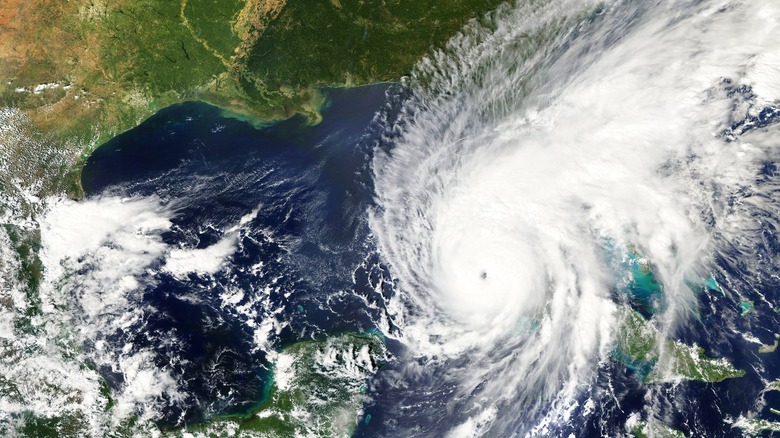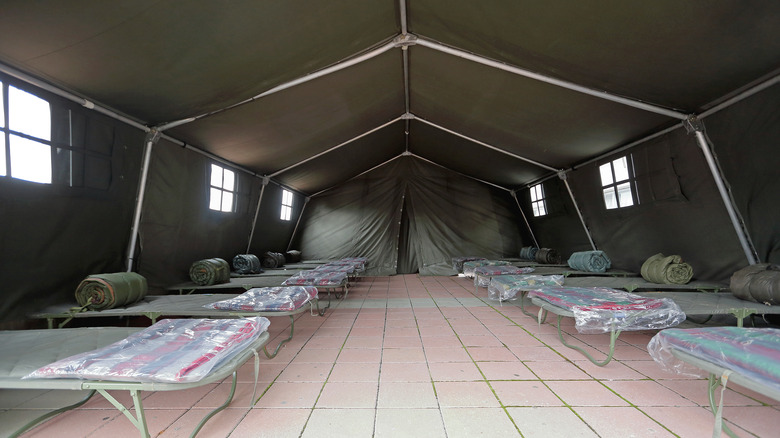What Health Problems Can Floridians Expect In The Aftermath Of Hurricane Ian?
While Florida is no stranger to natural disasters, Hurricane Ian caused wide-scale destruction when it made landfall in the state this week. In addition to structural damage, however, the Category 4 hurricane has left many Floridians vulnerable and susceptible to a variety of health concerns in its wake. According to Healthline, one of the most pressing concerns about Hurricane Ian's impact on Floridians' health is water contamination.
Water contamination may occur as a result of flooding from wastewater treatment facilities and street or agricultural run-offs. This can make running water dangerous to drink, especially if it contains toxic chemicals. As a result, officials have instructed residents to boil their water before drinking it in some areas. As the flood water recedes, it can leave mold spores and toxins behind, which can cause breathing issues. Inhaling or ingesting these spores can lead to a whole range of symptoms. While some people may experience cold-like symptoms, others may have a more severe reaction and develop an autoimmune disease. That's why it's best to get rid of any mold in your home right away.
Experiencing a catastrophic hurricane can also impact one's mental health and well-being. That's because a hurricane is a traumatic event that can lead to psychological effects, like anxiety and post-traumatic stress disorder (PTSD). "Common PTSD symptoms include hypervigilance, flashbacks, nightmares, avoidance of reminders of the trauma, and cognitive distortions about the world and the future," Dr. Stephanie Freitag, a licensed clinical psychologist, told Healthline.
COVID-19 cases may increase in Florida
According to Time, Hurricane Ian has also left some Floridians more vulnerable to COVID-19. That's because emergency shelters for hurricanes and other natural disasters tend to be crowded. Being in such a small and confined space with those who are infected with the virus can increase your risk of infection. Wearing a mask and getting vaccinated, however, can reduce your risk of getting COVID-19 while seeking refuge in an emergency storm shelter. It can also help free up capacity in hospitals and clinics so healthcare providers have enough beds to treat anyone who was injured in the storm.
Before Hurricane Ian made landfall, however, relatively few people in Florida had received the new COVID-19 booster shot. The shot provides protection specifically against the highly transmissible Omicron variant of COVID-19. Although there was no large spike in cases during the hurricane seasons in 2020 or 2021, COVID-19 safety measures were still in place at the time, whereas now they are not. As a result, there may be an increase in COVID-19 cases in Florida in the wake of the storm.


